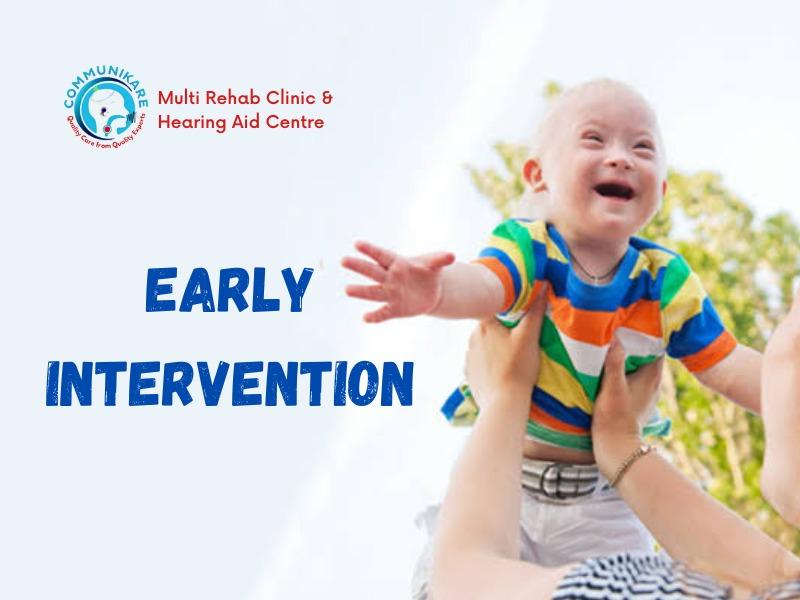Early Intervention
Admin
December 19, 2022

Communikare’s Early Intervention
Early intervention is the provision of individualized, evidence-based assistance to children
with a disability or developmental delay and their families. It requires the expertise of
specialists such as physicians, nurses, and allied health professionals. Early childhood
intervention, or ECI, is another name for early intervention.
A successful early intervention program has a family-centered approach, which includes
teaching and enhancing the skills of parents and caregivers so that they may best support a
child in his or her daily routine and daily life. The program should address the needs and
priorities of both the child and the family.
All children deserve equal opportunity for healthy growth, development, and family and
community involvement. Research shows that the first few years of a child’s life are very
important for giving them the best chance of living healthy, happy, and useful lives
How is early intervention implemented?
During childhood, when people grow and change quickly, the body, brain, and nervous
systems are very open to what is going on around them.
Many factors influence your child’s physical and mental development. Some, such as
genetics, cannot be changed. Others may be utilized to optimize proper development, such
as:
- Sensory inputs, including reading, singing, speaking, and/or signing to your kid;
- Activities that help develop postural control and fine and gross motor skills;
- Opportunities for social and emotional connection;
- Time to play and explore the surroundings; and their food and feeding habits.
If your child forms good habits when he or she is young, he or she will have the best chance
of being successful in the long run.
Physical - their minds and bodies
For instance, occupational therapy can help your child improve fine and gross motor
abilities. Occupational therapists also assist children in doing basic daily chores such as
dressing, using the restroom, and eating. Dietetics can assist with problems such as food
allergies, digestive disorders, and weight management.
Social and Emotional - their capacity to manage their emotions and develop good connections
For instance, speech language pathology can improve your child’s communication skills.
Children can learn to manage their emotions and cope with stress and anxiety through the
study of psychology.
Cognitive - their thinking and learning ability
Speech language pathology can assist your child’s reading and language development.
Behavioral - how they control their conduct
Psychology and behaviour support therapy, for instance, can assist your child in developing
good modes of expression and interaction.
Benefits of Early Intervention
Evidence suggests that early intervention is more likely to be helpful because the pathways
in the nervous system are more malleable at that age.
Among the advantages of early childhood intervention are:
- Enhancing the likelihood of healthy physical growth enhanced social and
emotional consequences. - Enhanced self-esteem, confidence, and resiliency
- Maximising learning and academic success
- Increased participation in family and community life encourages positive behaviour



Categories

We Care for Your communication,
Quality Care from Quality Experts.
Quick Links
Subscribe Our Newsletter
You’ll receive regular updates on our special offers, and other exciting news.
www.communikare.in